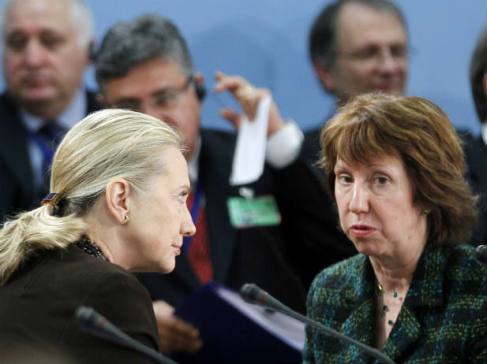I just returned from a very intense three-day visit to Israel with a delegation of researchers from various EU think tanks. We met with researchers from the research unit of the Israeli foreign ministry, with top Israeli academics from the Hebrew University, Tel Aviv University, and the Interdisciplinary Center in Herzliya, as well as with authors, diplomats and politicians. While opinions ranged from left to right on the Israeli political spectrum, allowing us a full perspective of the complexity of the domestic political situation in Israel, there was little disagreement about the most important issue of the day: the Iranian threat.
Most of the experts that we talked to expressed hopes that Iran would come around in the negotiations, that sanctions would work, and that Israel would be spared of acting militarily. However, few—if any—of those we talked to (even the leftists) seemed to believe that an Israeli strike on Iran was very far away. Most even advocated it as a necessary option to neutralize the Iranian threat.
When faced with the possibility that an Israeli strike would have the opposite effect; to only slow down the current Iranian program for a few months while also ensuring that Iran will step up efforts to develop nuclear weapons in the future, most of the analysts seemed unfazed. When faced with a gamble, said one, you have to act; as a politician, he said, you cannot gamble and lose.
One of the experts, a nuclear scientist, clearly explained that if the P5+1 negotiations (the Five permanent members of the Security Council plus Germany) in Baghdad fail, Israel will have to act sooner rather than later, most likely sometimes in June. He believed that Israel and the US would act together and that much of the Israeli current rhetoric is aimed at convincing the US that there is no choice but to strike Iran.
Thus, if the talks in Baghdad stall, he pointed out, another meeting will likely be scheduled for June, but most likely, Israel cannot wait that long. The parties to the negotiations in Baghdad today walked away with no agreement other than a promise to meet in Moscow on June 18-19. While the West failed to get Iran to agree to a stepped up inspections program, Iran failed to get the West to agree to the easing of sanctions in return for such access.
Lets hope the Israeli experts are wrong.
For more details of these talks see these articles in the New York Times, and the Times of Israel

